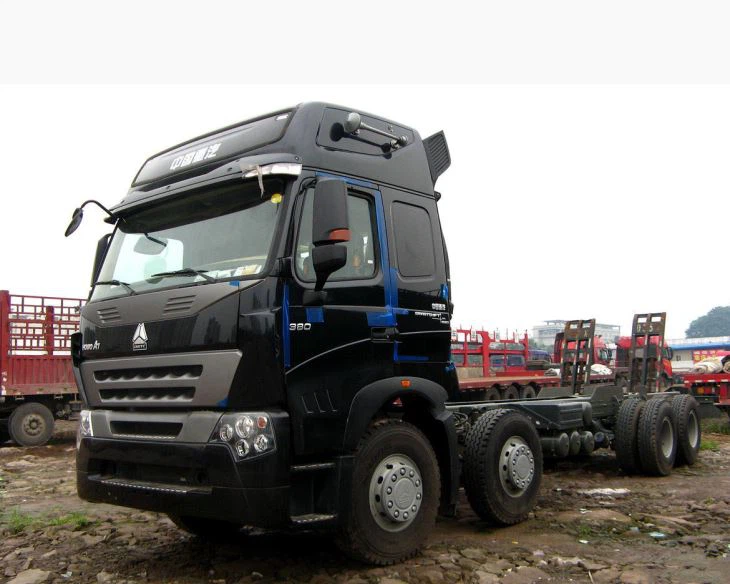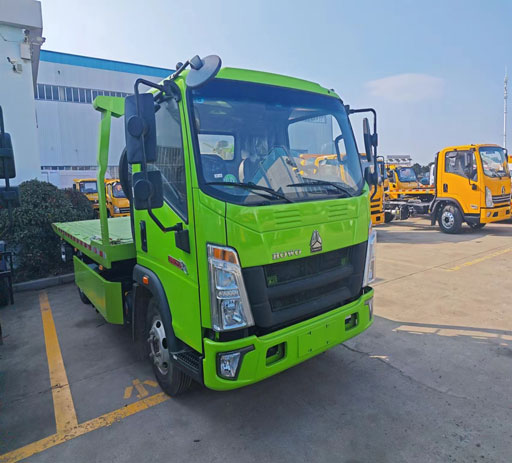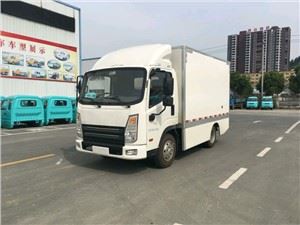Small Refuse Trucks: The Ultimate Guide to Efficient Waste Management

In today’s fast-paced urban environments, efficient waste management is crucial to maintaining cleanliness and sustainability. Small refuse trucks are becoming increasingly popular due to their maneuverability and efficiency. This article explores the importance of small refuse trucks, their features, types, benefits, and tips for choosing the right one for your needs.
What Are Small Refuse Trucks?
Small refuse trucks are specialized vehicles designed for waste collection in urban areas. Unlike larger trucks, they are engineered for narrow streets, crowded neighborhoods, and urban settings where space is limited.
The Anatomy of Small Refuse Trucks
Small refuse trucks are typically built on a light-duty truck chassis and may include features such as:
- Compact design for urban maneuverability
- Automated or semi-automated lifting systems
- Efficient waste compaction systems
- Eco-friendly fuel options
Types of Small Refuse Trucks
Understanding the different types of small refuse trucks can help operators choose the best model for specific waste collection needs.
1. Rear-Loader Small Refuse Trucks
Rear-loader trucks are equipped with a compactor located at the back, allowing waste to be loaded from behind. They are ideal for residential waste collection.
2. Side-Loader Small Refuse Trucks
Side-loaders allow operators to collect waste from the side of the truck, making it easier for drivers to access trash bins without leaving the vehicle.
3. Front-Loader Small Refuse Trucks
Front-loaders are designed for commercial applications and can lift large bins from the front, making them ideal for businesses and urban settings.
4. Automated Small Refuse Trucks
With advancements in technology, some small refuse trucks are fully automated, requiring minimal human intervention during waste collection.
Key Features of Small Refuse Trucks
When selecting a small refuse truck, it’s crucial to consider the features that enhance its functionality.
Compact Size
The compact size allows maneuvering through tight spaces, making it suitable for urban environments.
Eco-Friendly Options
Many modern small refuse trucks are designed to be environmentally friendly, utilizing alternative fuels like electric or hybrid technology, reducing emissions.
Versatile Loading Mechanisms
Different loading mechanisms allow small refuse trucks to adapt to varying waste collection practices, improving efficiency.
Durability and Maintenance
Quality construction and materials are crucial for longevity, and regular maintenance is necessary to ensure optimal performance.
Benefits of Using Small Refuse Trucks
Implementing small refuse trucks in waste management offers several advantages.
1. Improved Maneuverability
Small refuse trucks can easily navigate narrow streets and congested areas, allowing for more efficient waste pickup.
2. Cost-Effectiveness
They often have lower operational costs due to reduced fuel consumption and maintenance requirements, making them budget-friendly for municipalities.
3. Enhanced Community Relations

Efficient waste management improves community cleanliness, fostering better relationships between waste management companies and residents.
4. Environmental Benefits
Small refuse trucks equipped with eco-friendly technologies help to reduce the carbon footprint of waste management operations.

Choosing the Right Small Refuse Truck
Selecting the appropriate small refuse truck requires careful consideration of specific needs and circumstances.
1. Assess Your Waste Collection Needs
Consider the type and volume of waste generated in your area to choose a truck with sufficient capacity.
2. Evaluate the Vehicle’s Features
Look for features that align with your operational requirements, such as compactness, fuel efficiency, and loading systems.
3. Consider Total Cost of Ownership
Factor in not only the purchase price but also the operational, maintenance, and potential resale value of the truck.
4. Research Manufacturers and Models
Investigate different manufacturers and models to find one that’s reliable and well-reviewed in the industry.
Practical Examples of Small Refuse Truck Usage
Here are some practical examples that showcase how small refuse trucks enhance waste management operations:
Urban Residential Collection
Municipalities in crowded cities utilize small refuse trucks to navigate alleyways and narrow streets, ensuring prompt waste collection without disrupting traffic.
Commercial Waste Management
Businesses often have limited space for waste disposal, making side-loading small refuse trucks a perfect solution for efficient waste collection.
Eco-Friendly Initiatives
Local governments promote sustainability by adopting electric small refuse trucks, showcasing their commitment to reducing emissions and promoting green practices.
The Future of Small Refuse Trucks
As technology evolves, small refuse trucks are expected to incorporate advanced automation, real-time data collection, and better eco-friendly options.
1. Automation and AI
Advanced automation will allow for better route optimization, improving efficiency and reducing operational costs.
2. IoT Integration
IoT-enabled trucks can provide data analytics, allowing for better waste management decisions based on real-time data tracking.
3. Sustainable Materials
Future small refuse trucks may use sustainable materials in their construction, contributing to overall environmental health.
FAQs about Small Refuse Trucks
1. What is the average cost of a small refuse truck?
The cost of a small refuse truck can vary widely based on features and manufacturer, typically ranging from $100,000 to $300,000.
2. How do small refuse trucks compare to larger trucks?
Small refuse trucks are generally more maneuverable and cost-effective for urban settings, while larger trucks may have greater capacity for heavy-duty waste collection.

3. Are there eco-friendly options for small refuse trucks?
Yes, many manufacturers now offer small refuse trucks that are electric or hybrid, significantly reducing their carbon footprint.
4. How often should small refuse trucks be maintained?
Regular maintenance is essential; it’s recommended to follow the manufacturer’s guidelines, typically every 3,000 to 5,000 miles or bi-annually for inspections.
5. Can small refuse trucks be customized?
Many manufacturers offer customizable options, allowing municipalities to tailor the truck’s features to meet specific waste collection needs.
6. What safety features should I look for in a small refuse truck?
Important safety features include rearview cameras, stability control, pedestrian alarms, and well-designed ergonomic controls for forklift loading capabilities.
Conclusion
Small refuse trucks play a critical role in modern waste management solutions. Their ability to navigate urban environments with ease, combined with their eco-friendly features, makes them an essential asset for municipalities and waste management companies alike. By understanding the different types, features, and future trends of small refuse trucks, stakeholders can make informed decisions that benefit both operations and the community.
